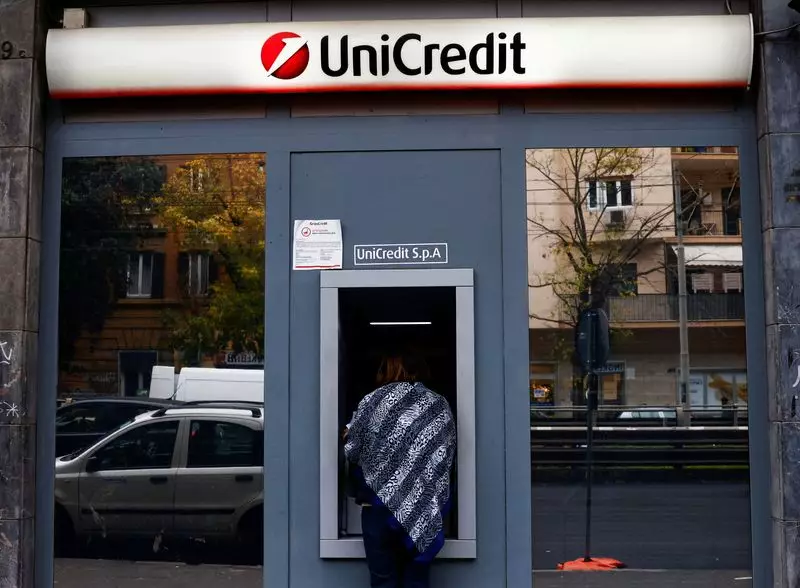As the Italian banking landscape evolves under increasing pressure for consolidation, UniCredit’s recent maneuver to acquire Banco BPM signifies not just a tactical acquisition, but also a broader trend in the financial sector. With CEO Andrea Orcel at the helm, the announced buyout and its implications weave a complex narrative of strategic intentions, market perceptions, and financial calculations.
On Friday, UniCredit advised Italy’s market regulator of its 10-billion-euro ($10.5 billion) buyout offer for Banco BPM, formalizing its intentions made public in November. By submitting the proposal, UniCredit set a definitive benchmark for the transaction and triggered necessary regulatory scrutiny. With a binding nature, the offer’s acceptance hinges on numerous variables, including market conditions and shareholder responses. Investors have reacted by keeping Banco BPM shares significantly above the offered price of 6.657 euros per share, indicating skepticism regarding the fairness of the offer or anticipation of a more advantageous proposal.
In a corporate landscape marked by volatility and strategic mergers, the significance of Orcel’s belief in the adequacy of the offer cannot be overstated. His assertion highlights a critical point: for any deal to gain traction, it must promise substantial shareholder value, ideally outshining returns from potential share buybacks by UniCredit itself. Furthermore, Orcel hopes any ensuing agreement will yield at least a 15% return, which is a pivotal metric for maintaining investor confidence and ensuring long-term sustainability.
Orcel’s approach reflects an understanding of the competitive banking environment where intense market pressures spur consolidation. Historically, Banco BPM had been a target for UniCredit, yet Orcel’s delay in pursuing the acquisition stemmed from the elevated M&A premiums embedded in BPM’s stock prices. However, the relentless drive towards domestic consolidation may have forced a reevaluation of this position, prompting the advanced negotiations.
UniCredit is not merely looking for an acquisition; it seeks to justify the merger as a strategic fit that surpasses existing financial frameworks. This trend emphasizes how mergers in the banking sector are often influenced by the pressing need for increased market share, operational efficiencies, and enhanced product offerings, realities that Orcel articulates extensively.
The proposed structure of the offer — 175 newly issued UniCredit shares for every 1,000 shares of Banco BPM — appears modest, presenting a premium of only 0.5% over the pre-bid price of Banco BPM shares. While this might border on minimalism, UniCredit argues that the offer represents a 15% premium relative to BPM’s stock before its bid for Anima Holding. The dynamics of how these offers are interpreted in various contexts are crucial; they can affect market perception, investor sentiment, and subsequent negotiations.
In a sector known for its high stakes, Orcel emphasized resilience and diversification in UniCredit’s operation as a selling point for Banco BPM shareholders, presenting an enticing argument amid economic uncertainty. These qualities will play a significant role in persuading BPM shareholders to accept the offer, as they compare potential benefits against holding their existing shares.
Beyond the proposed financial transaction, Orcel has extended an invitation to Credit Agricole, Banco BPM’s largest stakeholder, to engage in discussions that may lead towards commercial partnerships. Given that Credit Agricole maintains ties with both Banco BPM and UniCredit, their role could be pivotal in shaping the negotiation landscape. The French bank’s recent move to increase its stake in Banco BPM to just under 15% underscores its vested interests, which might yield further complexity to the acquisition process.
The involvement of multiple stakeholders invites a layer of negotiation that extends beyond simple financial terms. This includes addressing the strategic alliances that could benefit the participants and reshape the Italian banking landscape for the future.
UniCredit’s bid for Banco BPM embodies a significant chapter in the ongoing saga of banking mergers and acquisitions in Italy. Orcel’s commitment to shareholder value and strategic appropriateness sets a high bar, emphasizing both the risks and rewards inherent in such bold initiatives. As the regulatory process unfolds and market reactions materialize, the successful orchestration of this acquisition will hinge on effectively aligning multiple interests, demonstrating the essential synergy between institutional ambition and market realities in the financial sector.

